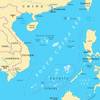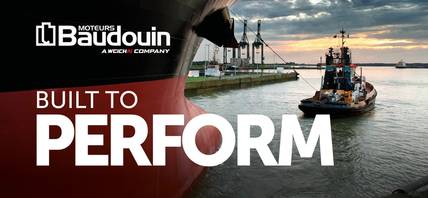Asia Buyers Wary of U.S. Condensate Test Results
Petchem producers unlikely to buy due to impurities in oil. Big middle distillates yield, less naphtha, LPG; wide variance in API gravities in assays, samples.
Tests on samples of the same type of U.S. condensate now heading to South Korea and Japan have raised questions about the ultra-light crude's suitability for use in Asia, sources said, making some potential buyers wary about taking the oil.
The uncertainty could delay a rapid build-up in the flow of U.S. condensate to Asia after the arrival of the first exports of U.S. crude in 40 years. Asian refiners and chemical producers will have to first determine the best use for the ultra-light oil before starting to buy in large volumes.
Two Japanese petrochemical makers - Showa Denko and Asahi Kasei - told Reuters they do not plan to process the condensate due to "impurities" that would make it difficult to use as a feedstock at their plants.
Lab work has also shown that the specifications of the oil from the Eagle Ford shale in southern Texas vary more than expected, said sources who have received samples or seen assays, making it difficult for refiners to determine how to use it.
"We don't know, that's the problem. The U.S. Eagle Ford is a mixture of well heads, not just from a single wellhead," said a source with a North Asian refiner that was considering buying a cargo of the oil.
The multiple wellheads and suppliers mean there can be wide variations in the oil's API gravity from cargo to cargo, the source said. API gravity measures how heavy or light a crude is, which determines whether it can produce more heavy products such as fuel oil or more light products such as diesel and jet fuel.
In the Eagle Ford basin, nearly 300 rigs are in operation, pumping 1.5 million barrels per day (bpd) of condensate in September, up from around 200,000 bpd in 2010, according to the U.S. Energy Information Administration (EIA).
Enterprise Product Partners LP, which has sold at least six cargoes of condensate, said it had not received any negative feedback from customers about quality.
Tests done in Asia and assays received from Enterprise have shown that the bulk of the oil's output, or two-thirds of its yield when run through a refinery, will be middle distillates, and about a fifth will be naphtha and LPG, said the sources who have received samples or seen the specifications.
The oil also contains at least 10 percent residue fuel and impurities such as base metals and sediment, which cannot be processed by petrochemical plants that are not integrated with refineries, the sources said.
"It's nearer to crude than condensate," said a source at a Japanese refinery.
Condensate, a non-gas liquid produced from natural gas fields, typically has API gravity of above 55 degrees and contains a high proportion of naphtha and liquefied petroleum gas (LPG) for chemical manufacture.
The API reading in one of the assays for some of the U.S. condensate is as low as 40 degrees, said the source with the North Asian refiner.
A lower API number means the crude is heavier.
ENTERPRISE, PIONEER
South Korean refiner GS Caltex is expected to receive the first condensate export cargo on Sept. 11, shipping data on Reuters showed. Japanese refiner Cosmo Oil Co's cargo is expected to arrive in October.
GS Caltex and Cosmo both declined to comment on their tests of the U.S. condensate prior to the cargo arrivals.
The United States has softened a four-decade ban on crude oil exports, by allowing the condensate to be sold overseas without a license once it is put through a stabilizer to qualify it as a refined product.
The bulk of Enterprise's six cargoes were supplied by U.S. independent producer Pioneer Natural Resources Ltd.
"We have heard nothing negative from our customers about the quality of the product and demand for processed condensate continues," said Rick Rainey, a spokesman for Enterprise.
The condensate that Pioneer has sent to Enterprise from its Eagle Ford processing plants has "very tight specs", said David Leaverton, a spokesman for the producer.
"Pioneer isn't directly exporting our product in a single batch like that. We sell to Enterprise. We can't speak to the products exported by Enterprise," he said.
Other producers of condensate in Eagle Ford include Apache Corp, EOG Resources Inc, BHP Billiton Ltd and Marathon Oil Corp.
By Florence Tan and Osamu Tsukimori















